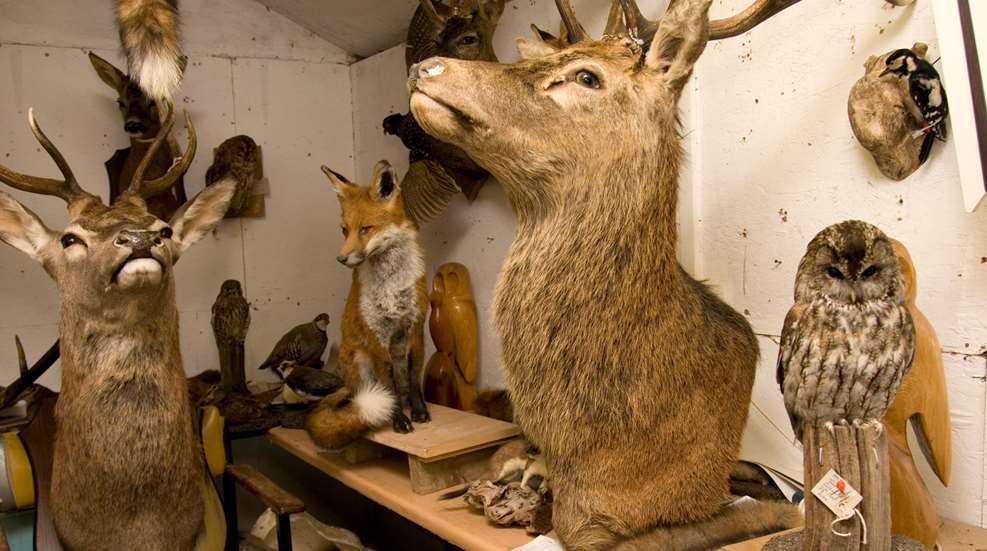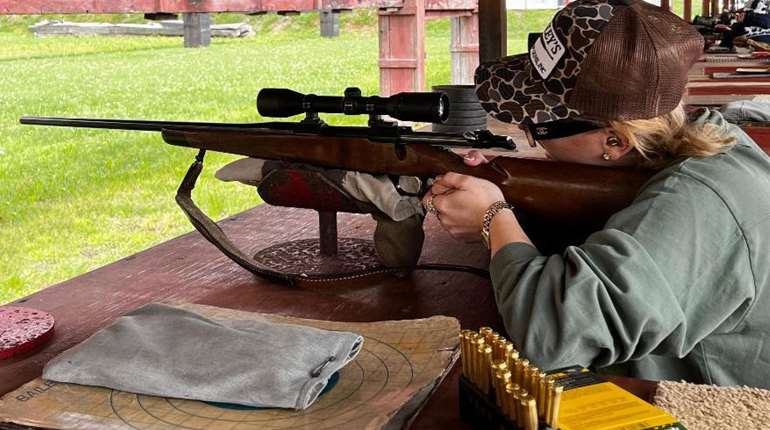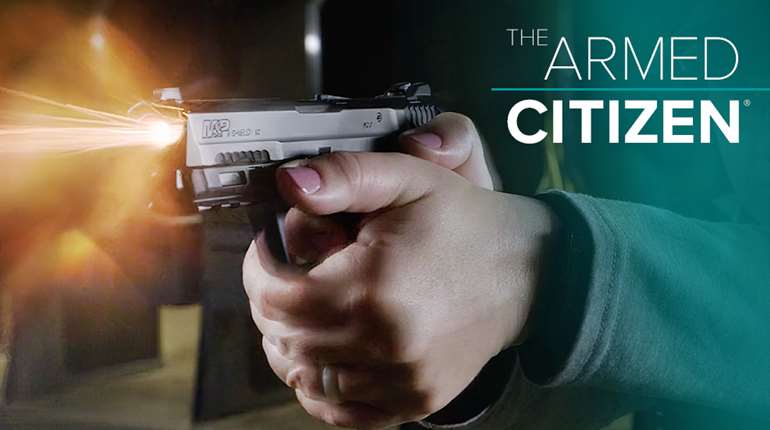
Whether you’re dealing with old taxidermy you inherited as part of an estate or you’re moving and simply don’t have room to hang all your mounts in your new place, you’ve got a conundrum: How do I get rid of all this taxidermy? You have two realistic options: Sell it, or donate it.
First, understand that there are tons of laws governing the sale of taxidermy, at the federal and state levels. You cannot legally sell anything that’s covered under the Endangered Species Act, with some exceptions if you can prove the item is an antique. Anything with ivory is particularly tricky. You may not sell any wild birds covered under the Migratory Bird Treaty Act, which includes all waterfowl mounts. Be aware of additional regulations regarding CITES species, and don’t forget the Lacey Act, which makes it illegal to sell fish or wildlife that’s been illegally taken, possessed, transferred or sold. That applies to state law and international law, and what’s legal in one state might not be legal in another, so crossing state lines with a taxidermy sale gets particularly hairy.
Every state has its own laws regarding the sale of taxidermy, so look yours up and contact your state’s DNR to confirm, because laws change all the time. In some states, you may sell any finished taxidermy animal that’s not restricted or protected federally. In some, it’s illegal to sell any taxidermy of any type for any reason. Others restrict certain species of fish or animals. Colorado doesn’t allow you to sell bear gallbladders (talk about specific). Some states require special permits or tags to sell your taxidermy. You need to be clear on the laws in your state and the buyer’s state.
Second, understand that the market for taxidermy varies based on the species and the quality of the animal and the work. I know Grandpa was proud of the biggest 8-point he ever shot, but the truth is that unless the work was well done and the deer is record-book size, few people outside the family are likely to place a high value on it. There’s just not a big-money market for whitetail heads unless they are massive, trophy size. There ARE buyers out there, but this is a niche market, and it can take considerable work to find and connect with the small group of buyers who are willing to pay for average-sized taxidermy, especially deer.
Donating is a great idea and can be a relatively quick and simple solution, especially if you find a place to take your entire collection, which is more likely if your collection contains trophy animals and more exotic species. Check with local museums and universities who might be interested. Some conservation organizations might accept taxidermy as donations to be raffled off as fundraisers. Your local DNR might be able to use some of them for educational purposes, too. The IRS allows you to write off the taxidermy cost as a donation on your taxes, if you itemize. You cannot deduct the cost of the hunt, the travel, shipping or any other expenses, and of course, the organization you donate to must be a qualified charity.
Selling the mounts yourself can be a headache. Assuming you’ve got all the legalities covered, finding a buyer for each individual mount and packing and shipping them is time-consuming and unlikely to net you much money when it’s all said and done. It's a good idea to contact a good, higher-end taxidermist in your state for advice. He or she might know of some local buyers, and in some instances, taxidermists are eligible for permits that allow them to sell things you can’t sell as an individual.
You might luck up and find an upstart hunting lodge, local sporting goods store or outdoorsy bar or restaurant that will pay a small to moderate amount for your mounts to use as decoration. If you choose to sell your mounts individually yourself, try Craigslist and ebay, but be sure you factor in shipping costs if you go outside your local area, and be absolutely certain you are following all applicable laws. You might also find a local thrift shop or antiques mall that specializes in oddities and might sell old taxidermy for you on consignment or buy it from you outright.
Several auction houses specializing in taxidermy exist. Lolli Brothers in Missouri and Western Sportsman in Texas are two that I’ve seen recommended, although I have not used them. Each auction house operates differently—some buy your taxidermy outright and auction it later, some sell with a minimum recovery guarantee with a commission at their location or an online auction at your location, and some will even assist you with a self-produced auction. This is probably your lowest-hassle option for selling, and even after the fees and commissions, it might be your most profitable one due to the time you’ll save and the broad reach these auction houses have.
It’s important to note that you shouldn’t expect to recoup your costs when selling. Of the many deer mounts listed on ebay at the moment I’m writing this (which, by the way, is not an endorsement of legality), none of them are listed for anywhere close to the amount it costs to have a head mounted, to say nothing of shipping costs (assuming everything is legal to do so). Needless to say, selling deer heads is not going to recoup the cost you put into having them mounted. It’s true that on some occasions and for really spectacular, record-breaking animals, large retailers and wealthy antler collectors have made some relatively high-dollar offers, but again, those are generally only for truly once-in-a-lifetime state-record-size deer.
Our taxidermy mounts mean a lot to us, because they remind us of adventures and hard-fought victories afield, but the reality is that they’re probably going to outlast us, and at some point your mounts might not fit into your life anymore or might need to be sold by your family after you’re gone. There is a market, albeit kind of a niche one, for secondhand taxidermy, so do your research about the legalities of selling, or consider donating the collection.














































